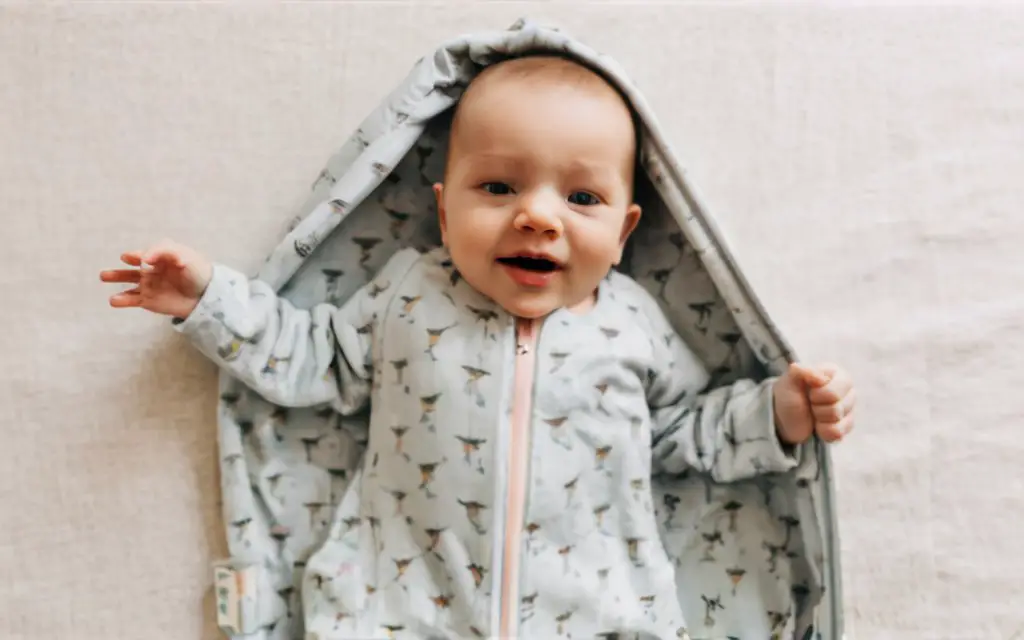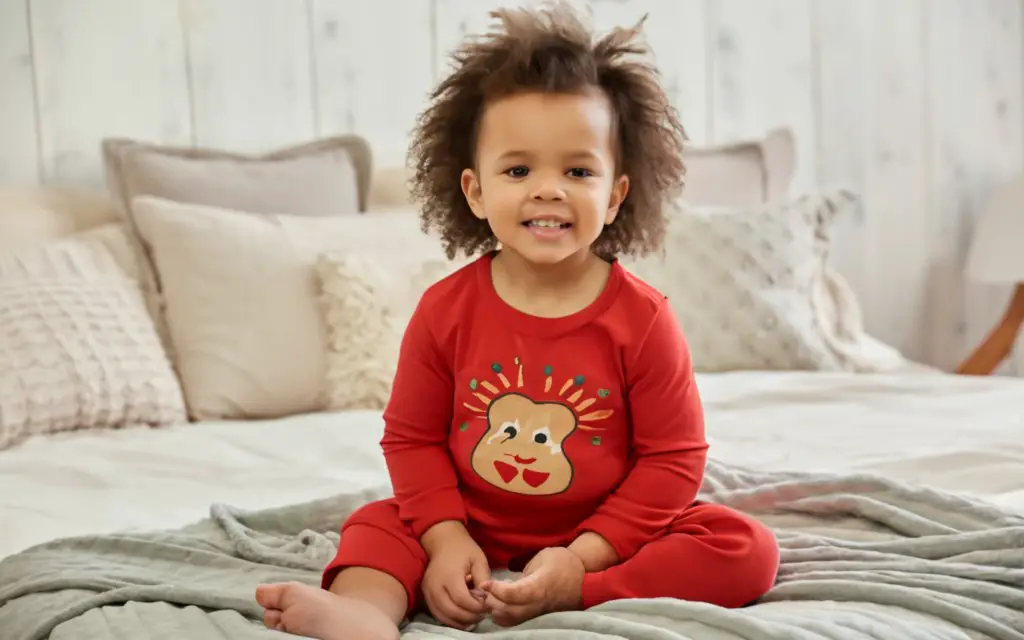Physical Address
304 North Cardinal St.
Dorchester Center, MA 02124
Physical Address
304 North Cardinal St.
Dorchester Center, MA 02124

Under a Dreamland Sleep Sack, dress your baby in light, breathable cotton pajamas. Choose one-piece outfits without hoods or loose strings for safety.
Selecting the right attire for your baby to wear under a Dreamland Sleep Sack can ensure your little one has a cozy and safe night’s sleep. Dreamland Sleep Sacks are designed to replace traditional blankets, providing a snug environment that can’t be kicked off, ensuring babies stay warm throughout the night.
It’s essential to pair the sleep sack with suitable clothing according to the temperature of the baby’s room. Lightweight cotton pajamas are often recommended because they provide comfort without overheating. Since overheating can be a risk factor for SIDS, it’s crucial to avoid overdressing your child. The right outfit contributes to safe sleep practices while ensuring the baby remains at a comfortable temperature throughout the night.

Ensuring your little one has a cozy night’s sleep starts with ‘Choosing the Right Layers’ to wear under a Dreamland Sleep Sack. With comfort and safety as top priorities, selecting the suitable material and thickness is essential. Let’s dive into how to make the best choices for peaceful slumber.
Room temperature greatly influences what your child should wear under a sleep sack. Follow these simple guidelines:
| Room Temperature | Recommended Layers |
|---|---|
| Above 75°F (24°C) | One light layer |
| 70°F to 75°F (21°C to 24°C) | One standard layer |
| Under 70°F (21°C) | One warm layer |
Fabric selection is vital for your child’s comfort under the sleep sack:
Dress them in soft, snug clothing that allows free movement without bunching.
Choosing the right material for your Dreamland Sleep Sack is crucial. It’s not just about comfort; it’s about safety and ensuring your baby gets a good night’s sleep. The right fabric will keep your baby snug without overheating. Here are the best options:
Cotton sleep sacks reign supreme for their breathability. They’re a go-to for many parents. Consider a lightweight, cotton onesie or pajama set underneath. Ensure it fits well to avoid bunching up. In warmer conditions, a short-sleeved bodysuit may suffice.
For chillier nights, plush fleece sleep sacks are ideal. The extra warmth means dressing your baby in less. A simple cotton undershirt works well. Remember, fleece is cozy but less breathable. Always check your baby to ensure they’re not too hot.
| Temperature | Under Sleep Sack |
|---|---|
| Cool | Long sleeve cotton top |
| Cold | Cotton undershirt |
Always follow the TOG rating guide. Match it with your home’s temperature. This ensures your baby stays warm without the risk of overheating.

Choosing the right wear under a Dreamland Sleep Sack matters a lot. It ensures your child stays cozy and safe through the night. Your little one’s age plays a big role in picking the correct sleepwear. Let’s dive into the best options for each age group!
For the smallest dreamers, comfort is key. Soft fabrics that are breathable fit the bill. Here’s what newborns and infants should wear:
Remember, newborns can’t regulate body heat well. Avoid overdressing them.
As babies grow, they need sleepwear that moves with them. Toddlers are active, even in sleep. Think practical and comfy:
Avoid loose clothing. It can bunch up and lead to discomfort or risks.
Ensuring your baby’s comfort and security at bedtime is a top priority. A Dreamland Sleep Sack is a cozy choice, but it’s vital to dress your little one properly underneath. The right clothing maintains their body temperature without the risk of overheating. It also ensures that sleep sack fastenings are both secure and comfortable for a safe night’s rest.
Keep your baby cool and comfortable under their Dreamland Sleep Sack. Choose breathable, lightweight fabrics like cotton that wick away moisture. Avoid thick, heavy garments; they can cause your baby to sweat and overheat during the night. Use this simple guide:
Dreamland Sleep Sacks have secure fastenings to keep your baby snug. Follow these steps for safe and easy dressing:
Correct fastening of the sleep sack means your baby has room to wriggle their hips and legs freely. This ensures a safe sleeping position and reduces the risk of hip dysplasia.
Accessorizing for Sound Sleep is about creating comfort from the inside out. The right accessories under a Dreamland Sleep Sack can enhance sleep quality. They maintain body temperature and ensure a cozy sleep environment. Let’s explore how to pair the perfect undergarments with your sleep sack.
Keeping feet warm is a science-backed sleep aid. Baby’s toes stay toasty with the right choice of socks or booties:
The layer worn directly under a sleep sack can affect sleep. Ensure the sleeper you choose follows these guidelines:
| Fabric | Fit | Seasonality |
|---|---|---|
| Soft and breathable like cotton or muslin | Close-fitting but not restrictive | Lighter for summer, warm for winter |
Remember, the right sleeper ensures comfort through the night. Always opt for non-irritating tags or seams and check the temperature guide for your sleep sack to match the right fabric weight.
The best materials for a sleep sack lining are breathable, soft fabrics such as cotton or bamboo. These materials help maintain a comfortable body temperature during sleep, offering a balance between warmth and ventilation.
To choose the right size sleep sack, consider the baby’s weight and height. Look for size guidelines provided by the manufacturer to ensure a comfortable fit that offers enough room for movement without being too large.
Layering with a sleep sack depends on the room temperature and the sleep sack’s material. A single layer of light clothing is often enough, but additional layers may be needed in cooler conditions. Always check the baby’s comfort and avoid overheating.
Yes, the Dreamland Sleep Sack is designed to replace loose blankets, which can pose a safety hazard. The sleep sack provides consistent warmth and reduces the risk of suffocation, entanglement, or climbing out of the crib.
To ensure your little one drifts into dreamland snug and safe, choosing the right attire is key. Opt for breathable, soft garments under their sleep sack. A simple onesie or light pajamas suffice, depending on the temperature. Prioritize comfort and safety to promote peaceful slumber every night.